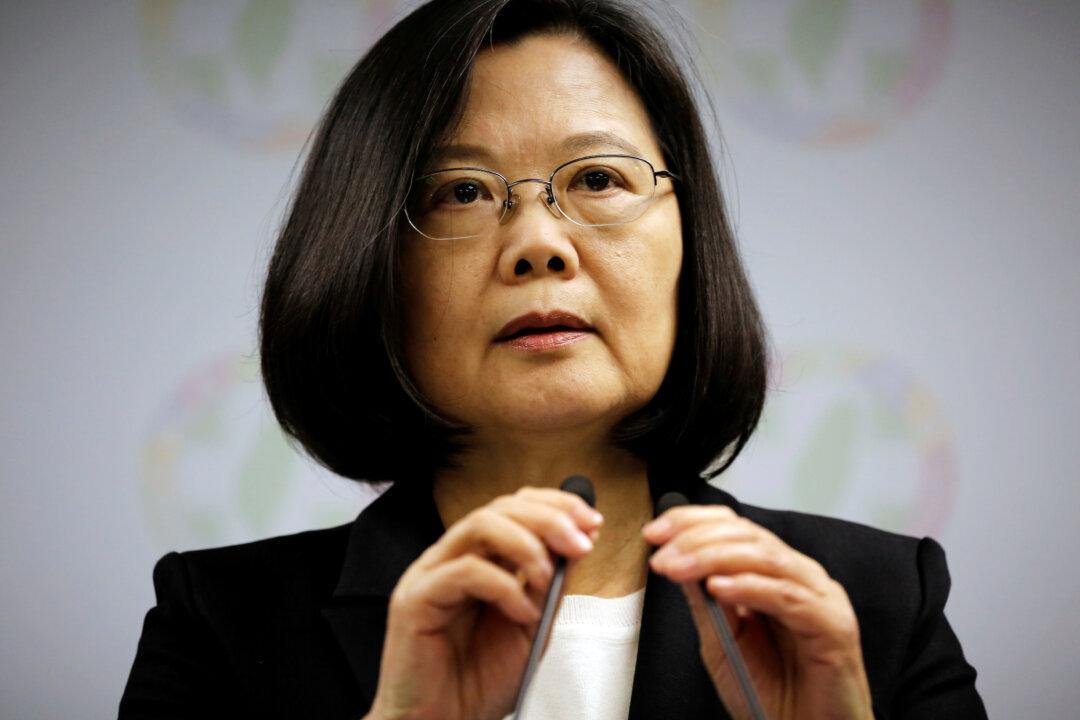TAIPEI—China must use peaceful means to resolve its differences with Taiwan and respect its democratic values, Taiwan President Tsai Ing-wen said on Jan. 1, ahead of a major speech about the island by Chinese leader Xi Jinping in Beijing.
China has heaped pressure on Tsai since she took office in 2016, cutting off dialogue, whittling down Taiwan’s few remaining diplomatic allies and forcing foreign airlines to list Taiwan as part of China on their websites.





